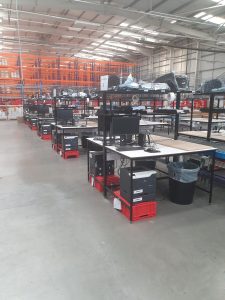Your basket is currently empty!

The three keys to transforming the retail and wholesale industry
07/11/2022 by Katrina
Consultants McKinsey & Company have published a paper that details the three key areas that will transform businesses in the retail and wholesale sectors.
1. Sustainability
The business sector needs to play its part in reducing greenhouse gases that cause climate change. This requires substantial investment in technologies that reduce the carbon footprint, such as solar panels on warehouse roofs. A storage rack supplier can use materials that contain recycled steel. Retail and wholesale companies can purchase more energy efficient equipment.
2. Digital
Much of the growth in the retail sector is driven by eCommerce. Online sales are forecast to double by 2030. Digital systems already process online orders. Retail management systems can be upgraded to include artificial intelligence that analyses customer data to maximise sales. Automation is an important way to increase production and warehouse efficiency.
3. Talent and skills
Though automation has a significant role in the retail and wholesale sectors, it is unlikely that robots will replace the human workforce. In Europe, the industry is the largest private-sector employer. To improve productivity the industry needs to recruit high quality talent, and train, and upskill existing workers.
McKinsey & Company believes that, if the retail and wholesale sector focuses on these three key areas, this will increase their resistance, fulfil their environmental mission and create new business opportunities. Achieving this requires considerable investment. McKinsey & Company estimates that at least 1.6% of annual income should be spent on the three key areas.
You may also interested in:

How repairing damaged warehouse equipment beats replacing entirely
A White Paper by Southgate Global has detailed how repairing warehouse equipment instead of
Warehouse operators warned about energy compliance crisis
New energy regulations could render some warehouse space unusable by 2030 due to
